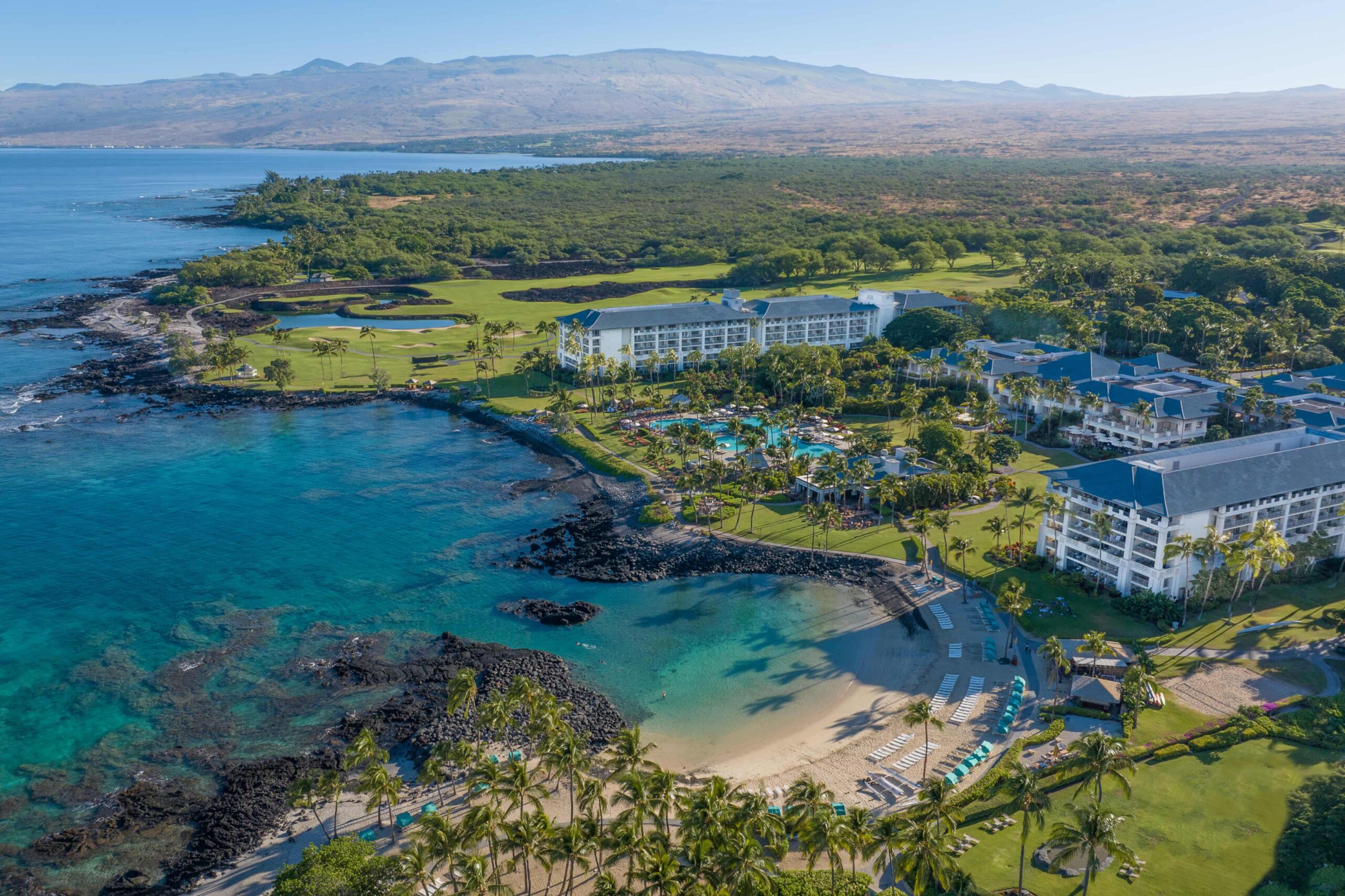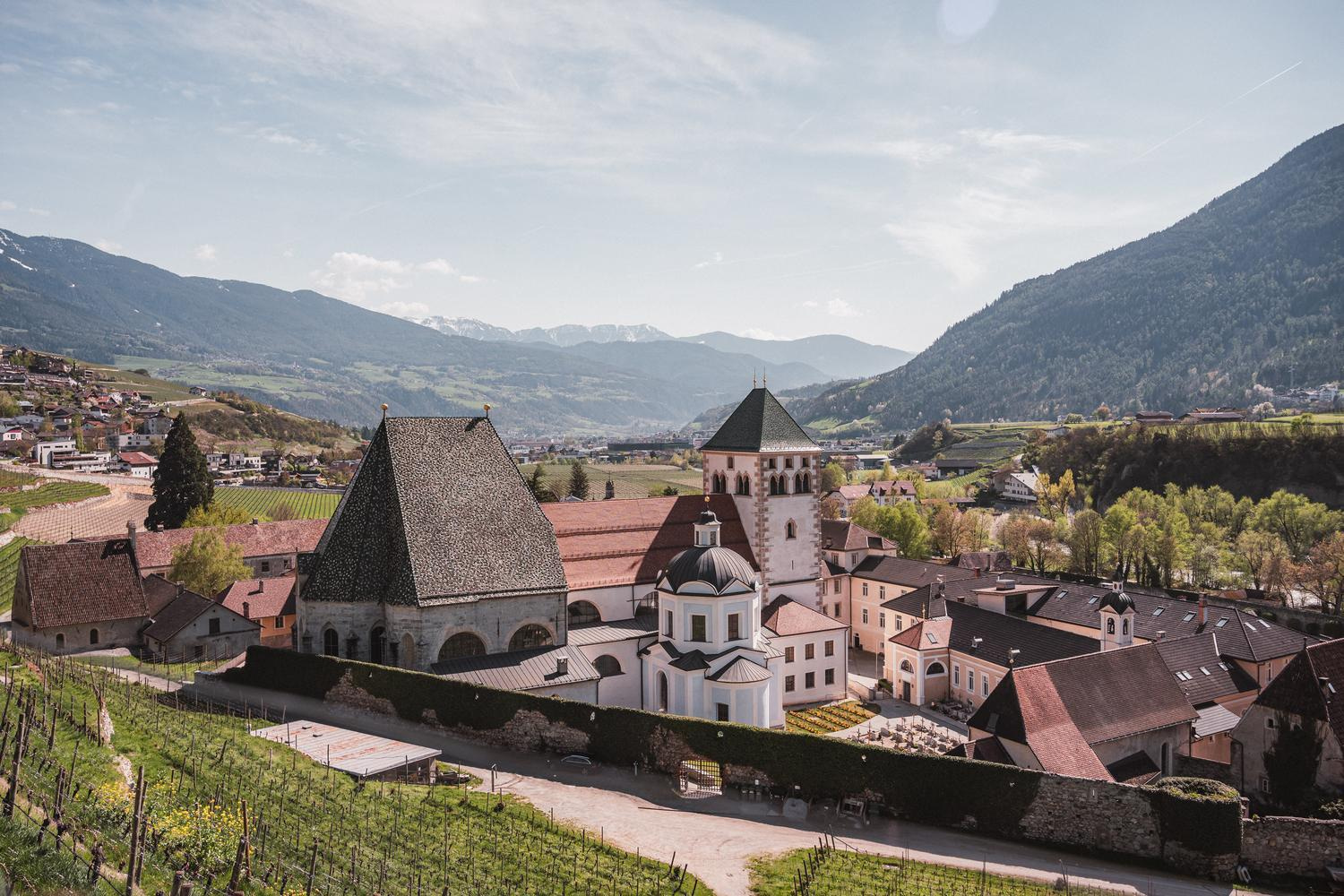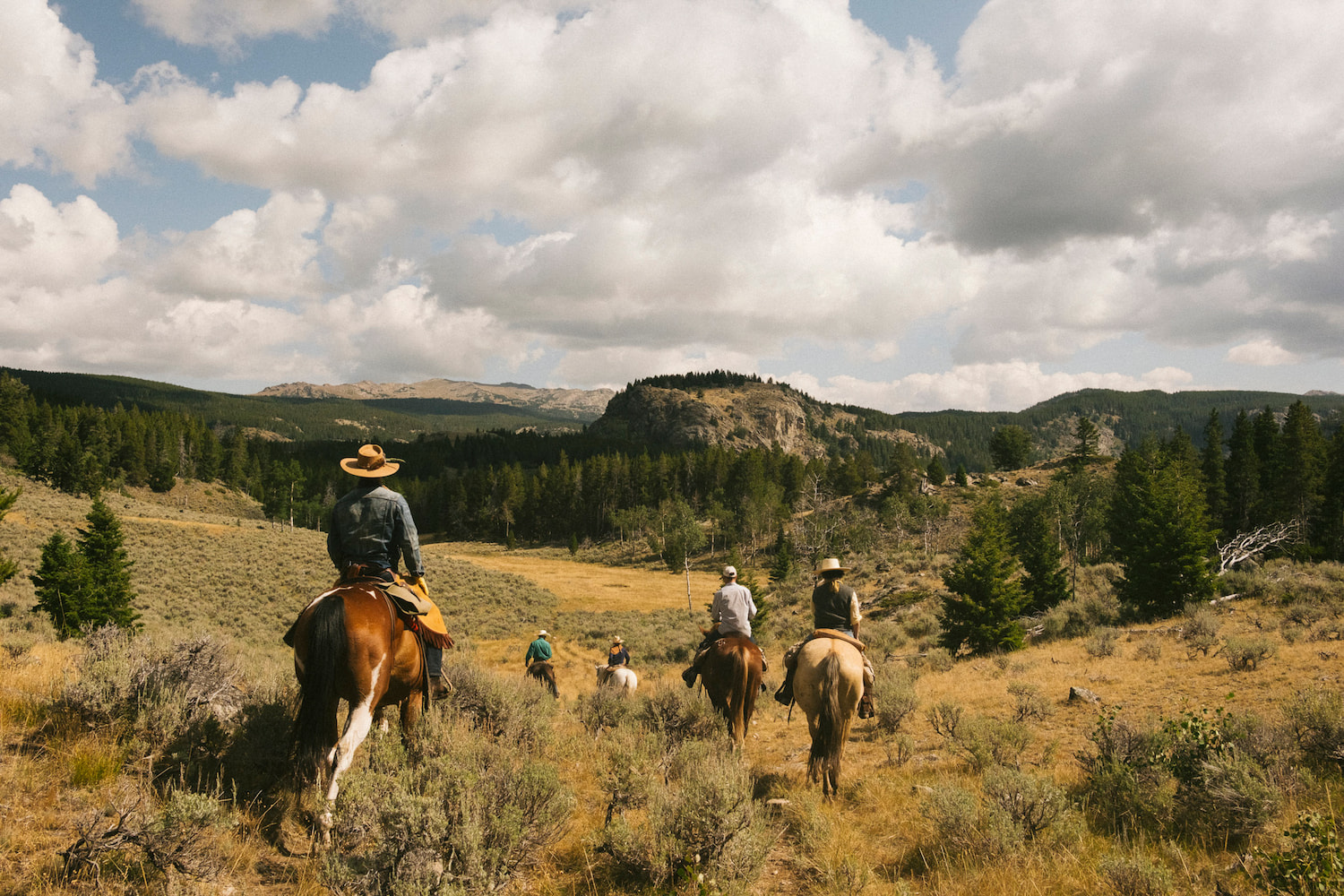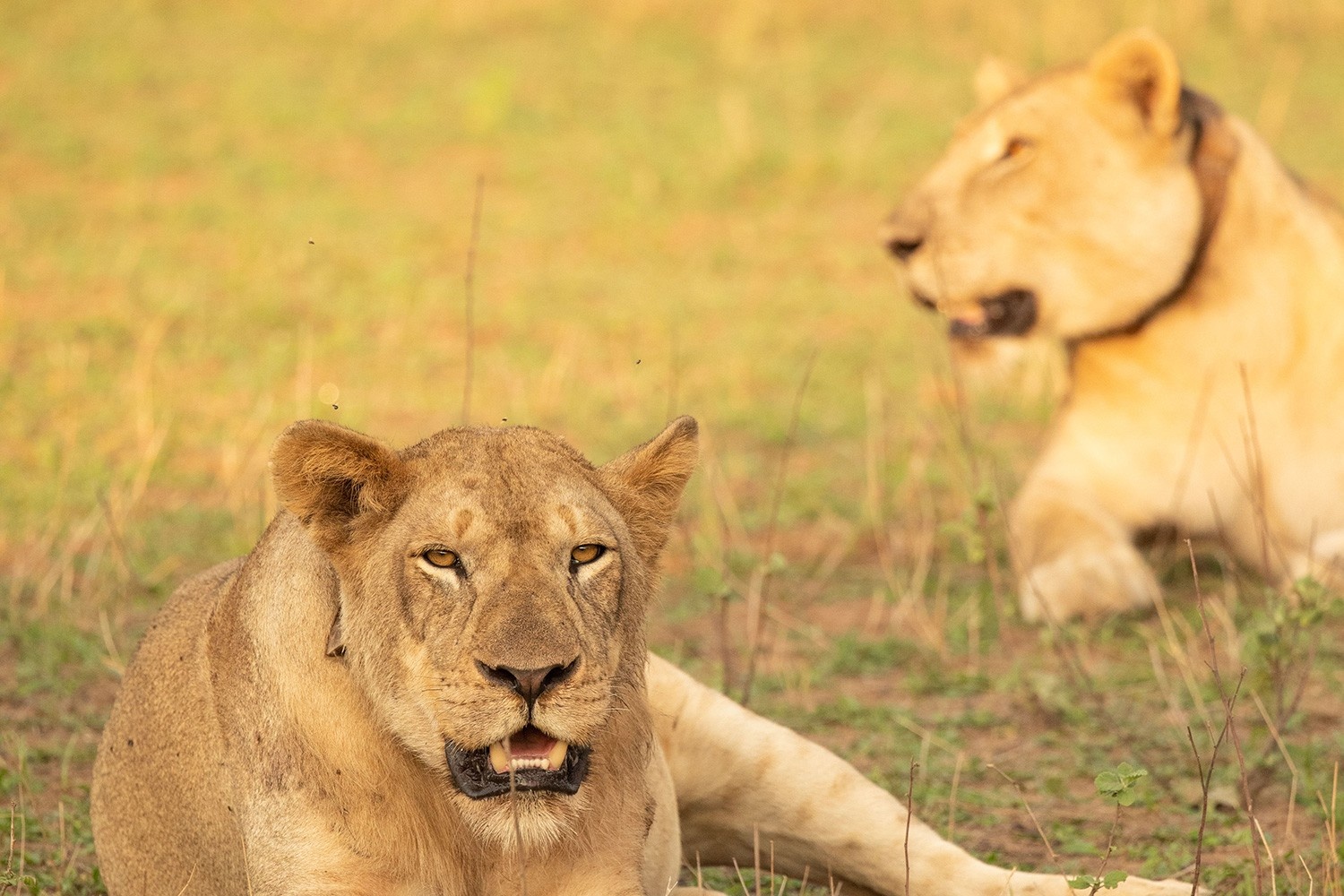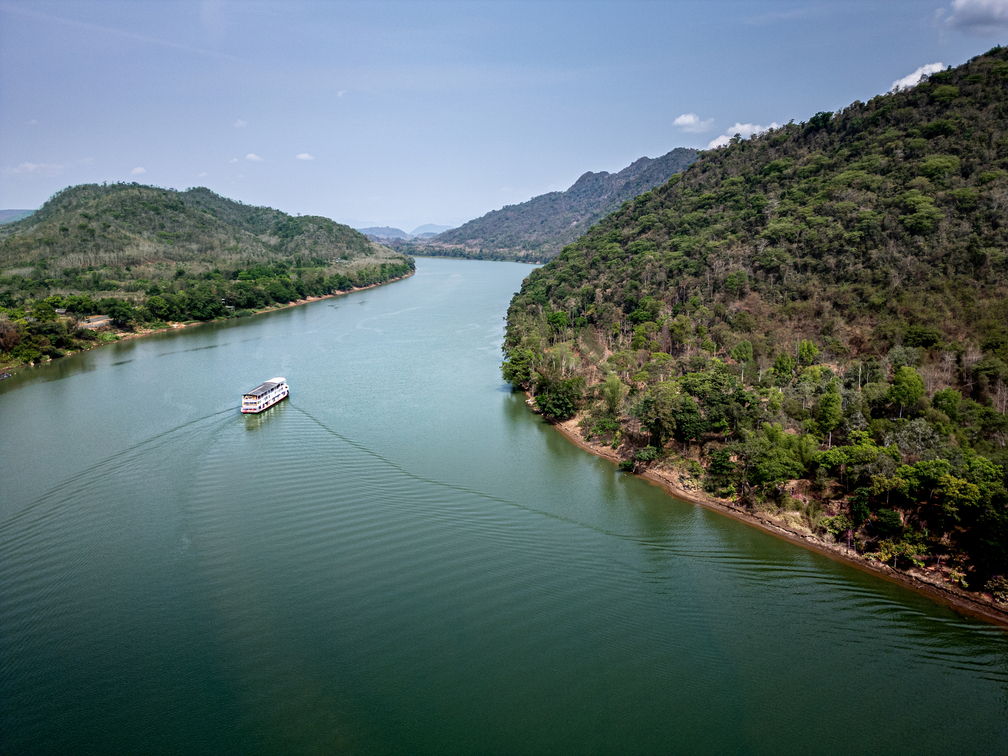NORTH STARS:
Wildlife Ecosystems
Production & Consumption
Waste Management
“At Fairmont Orchid, the philosophy of mālama ʻāina (a reciprocal relationship of caring for the land) is at the heart of our operations.”
Donning my snorkeling gear, I slip into the crystal-clear waters of Hawaii’s Pauoa Bay. Sunlight filters through the surface, illuminating a kaleidoscope of coral formations below. Translucent parrotfish nibble at algae, and schools of yellow tang dart amongst the coral branches. The distant crashing of waves against the outer reef and gentle swaying of the ocean are almost hypnotic. The saltwater cools my skin as I listen to the rhythmic sounds of my own breath inside the snorkel.
Despite its reputation as an island paradise, Hawaii now grapples with the delicate balance between its allure and its preservation. The islands, strained by the pressures of overtourism and climate change, face urgent calls for sustainable practices and conservation. From the depletion of precious resources to the safeguarding of fragile ecosystems and the protection of native Hawaiian culture, the challenges are profound.
The Fairmont Orchid is stepping up, demonstrating that responsible tourism is not just an ideal but a tangible practice. With programs like its reef restoration, a dry forest initiative, and waste reduction efforts, it is actively working to mitigate its environmental footprint, and contributing to the long-term health of the island it calls home.
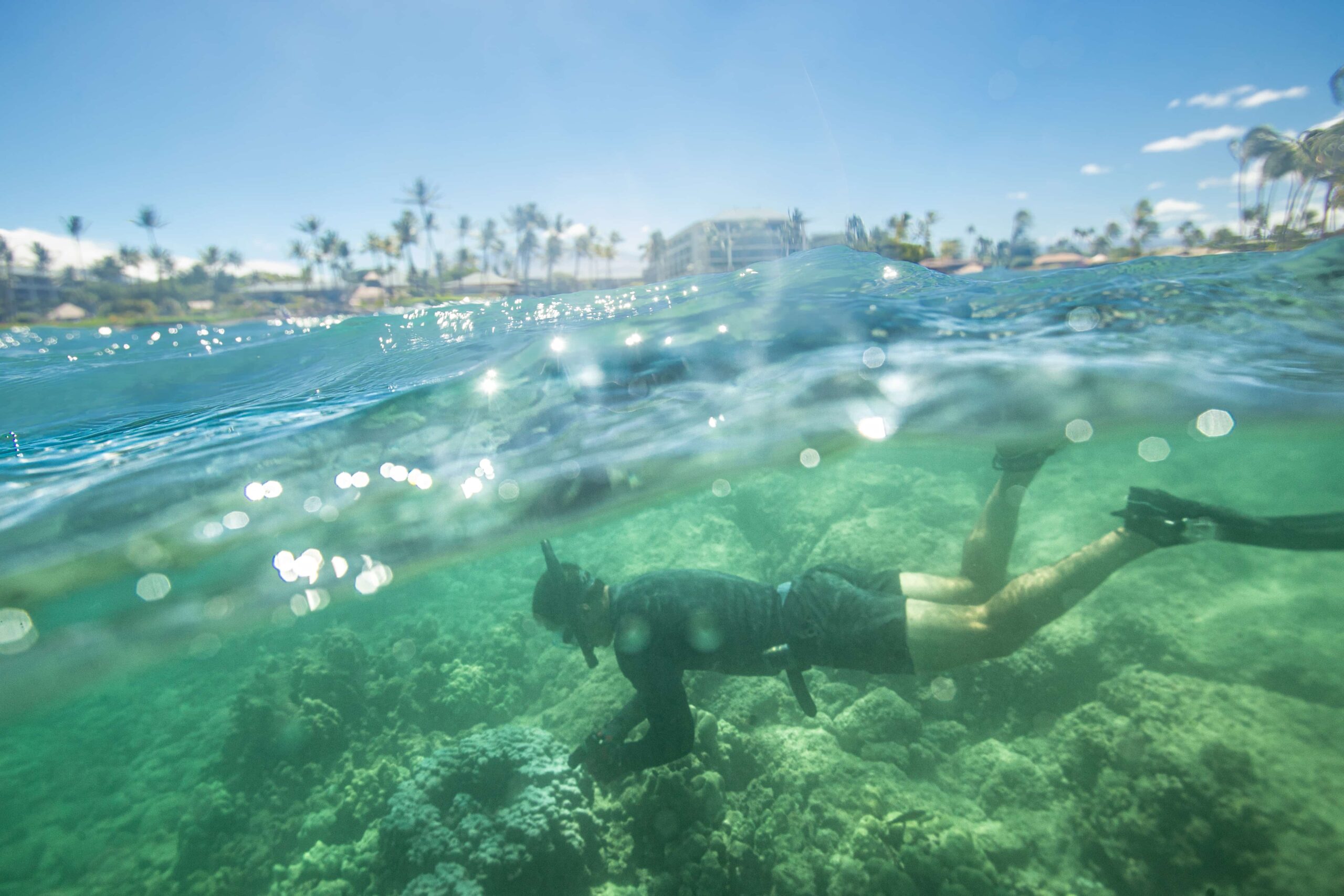
A diver looks for coral in Pauoa Bay. Courtesy of Fairmont Orchid
“At Fairmont Orchid, the philosophy of mālama ʻāina (a reciprocal relationship of caring for the land) is at the heart of our operations,” says Ka’iulani Blankenfeld, the resort’s Director of Hawaiian Culture and Sustainability Committee Member. “Our philosophy revolves around environmental stewardship, community support, and creating a harmonious balance between luxury and nature.”
The resort employs a multi-pronged approach to handling the island’s unique sustainability challenges. This has resulted in it earning Green Key Global certification, an internationally-recognized eco-label that is awarded to tourism establishments around the world that meet high environmental standards.
Setting the Standard
The victims of strong waves, coastal pollution, and overfishing, the coral that lie at the bottom of Hawaii’s Pauoa Bay have been suffering. But one morning last August, a team of divers guided by the ʻĀkoʻakoʻa Reef Restoration Program, carefully gathered broken fragments and delivered them to a nearby research and propagation facility.
While detached corals typically die within weeks of natural breakage, those collected have been living in a nursery with the purpose of breeding. Many of them have successfully given birth in a process known as spawning, with the goal to reintroduce them to their native habitat in Pauoa Bay this summer.
Fairmont Orchid became the first hotel in Hawaii to embrace this groundbreaking initiative, pledging to be the guardian of the ecosystem that defines its shores. Blankenfeld says that the partnership with the ʻĀkoʻakoʻa Reef Restoration Program helps to “protect, preserve, and revitalize the coral reef of Pauoa Bay on which the property rests, to ensure that our resort leaves a positive impact on the environment for generations to come.”
According to Blankenfeld, “Our long-term vision is to continue restoring the reef to its full potential, contributing to the regeneration of marine life and providing a thriving habitat for future generations. We’re committed to making the reef restoration a model for other resorts in the region.”
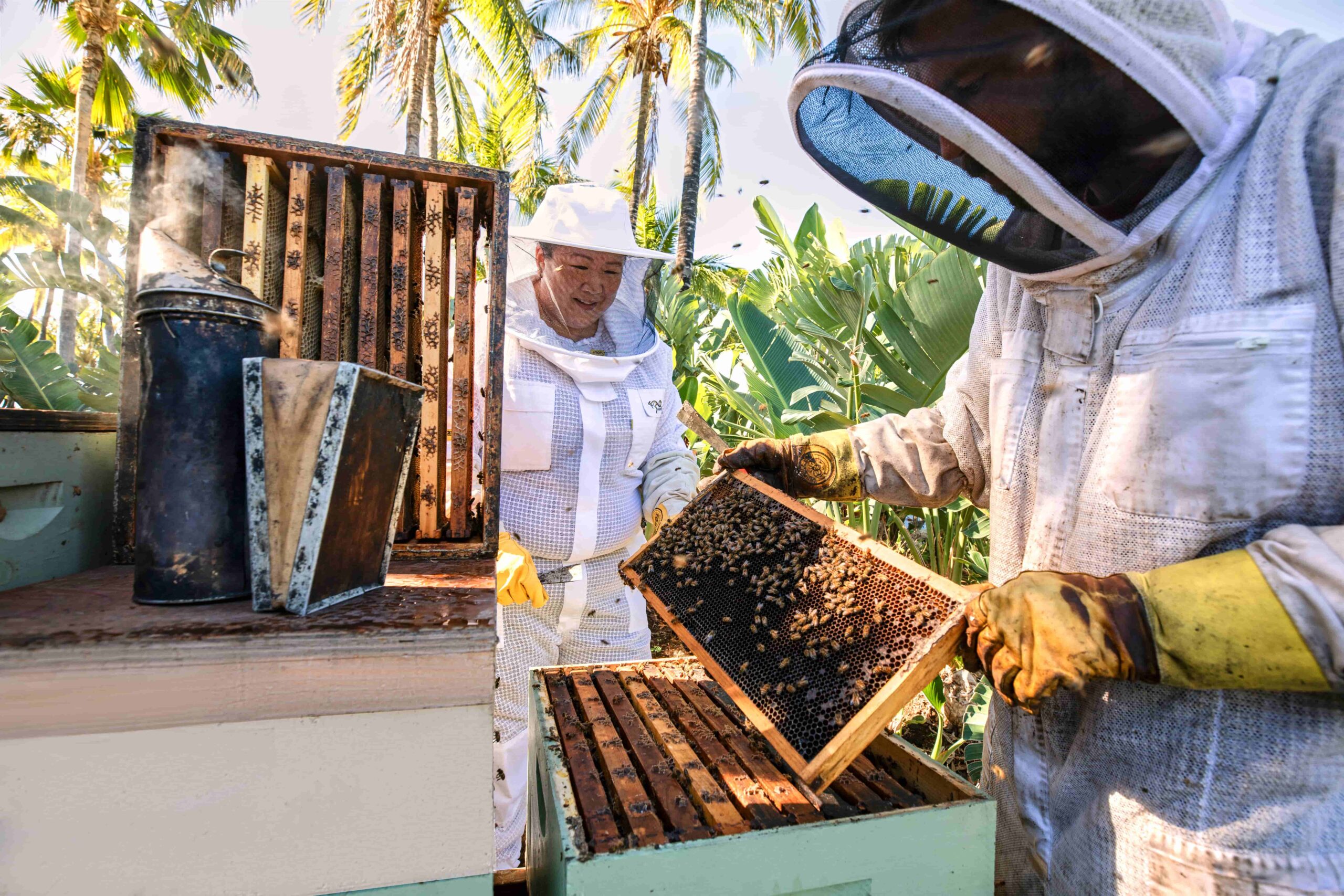
Along with guests, the Fairmont Orchid is home to 80,000 bees that aid in pollination and provide honey. Courtesy of Fairmont Orchid
Bee the Change
There are four hives on property that are home to more than 80,000 local honeybees. As they buzz industriously amongst the colorful flowers, their tiny bodies become dusted with pollen. Fairmont Orchid works with local beekeepers, such as those from the Rare Hawaiian Honey Company, to manage their hives. It also uses the “Flow Hive” technology, which allows for easier honey harvesting with minimal disturbance to the bees.
“Our bees pollinate the resort’s gardens and surrounding areas, producing high-quality and rare kiawe honey,” Blankenfeld says. “The honey is used in a variety of ways, from being featured in our dishes and drinks to being incorporated into luxurious spa treatments. It’s a sweet way to support both sustainability and relaxation for our guests.”
Stewards of the Land and Sea
Blankenfeld leads guests on weekly Aloha ‘Āina, a Botanical Bees & Chef’s Garden tour that teaches them about native plants and the Hawaiian legends behind pollinator plants like the naupaka. One of her favorite tours is the Ulu Pono Garden Experience, which takes place at Kaohinani, the resort’s Chef’s Garden. The rich, earthy aroma of fertile soil mingles with the pungent scent of herbs and the sweet fragrance of ripening fruit — a gardener’s paradise. Native plants with unique leaf shapes and colors fill the garden, different shades of green contrasting with the dark volcanic soil.
“Guests may learn about a variety of canoe plants brought to Hawaiʻi by the first Polynesians to migrate here, and trees while harvesting fruits, vegetables, and herbs,” she says. “They can also taste select items and understand the importance of Hawaiian plants to our culture and culinary landscape.”
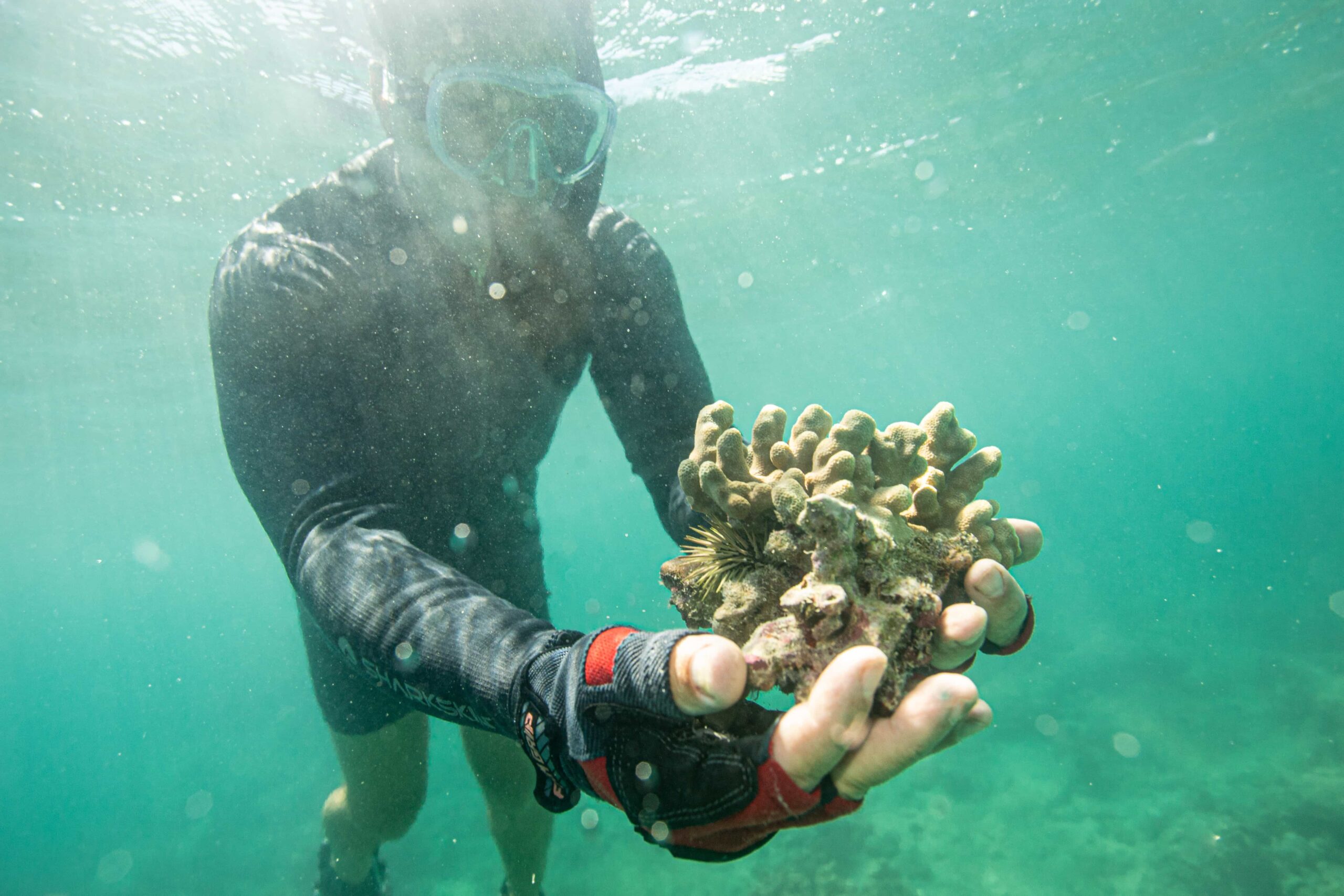
By collecting coral fragments, the ʻĀkoʻakoʻa Reef Restoration Program aims to help rebuild local reefs. Courtesy of Fairmont Orchid
While reef restoration is the cornerstone of the resort’s conservation efforts, the property also partners with the Waikōloa Dry Forest Initiative, which is dedicated to the restoration and protection of native forests and educating local children. In this stark black lava field—one of the driest places in Hawai‘i—young seedlings of native trees signal the hope of forest restoration, growing among the hardy plants that dot the landscape. Hotel guests can take guided hikes or volunteer with the program, and fourth and fifth-grade students at Waikōloa Elementary and Middle School can take part in Future Foresters, an ongoing after-school program and immersive nature experience initiative.
Reduce, Reuse, Recycle
Waste reduction and management is another priority for Fairmont Orchid, which diverts food waste from the landfill by donating to farmers on the island to use as pig feed. It partners with local farms to source food sustainably, and repurposes ingredients to create new dishes. Fairmont Orchid has also eliminated single-use plastics, including water bottles, straws, and small bathroom amenities.
When the resort replaced single-use plastic bottles in guest rooms with reusable insulated water bottles for guests, it installed water refill stations throughout the property.
In a state where the impacts of tourism are increasingly scrutinized, the Fairmont Orchid stands out for putting resources behind conservation. Its efforts won’t reverse climate change or halt development, but they do reflect a shift: toward more responsible models of hospitality that acknowledge their footprint.
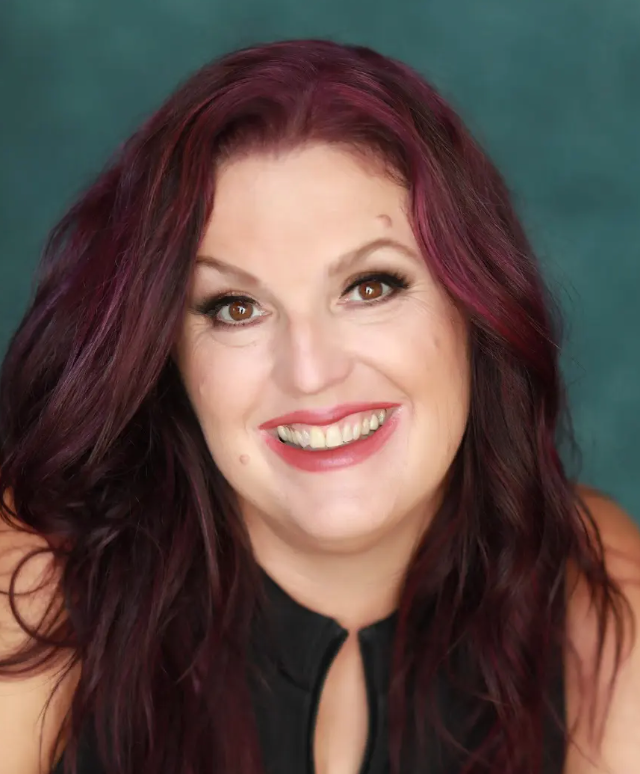
Based in Southern California, Danielle Bauter is a freelance travel journalist who focuses on food and spirits, wellness, nature, and remote destinations. Her writing has appeared in a variety of print and digital publications, including BBC Travel, Lonely Planet, Condé Nast Traveler, Fodor’s Travel, Atlas Obscura, and SAVEUR. A former bookseller, she’s also passionate about indie bookstores and literary-themed cocktails. Follow her travels around the world on IG @missbauterfly, and find more of her work in her portfolio.
North Stars: Production & Consumption, Waste Management, Wildlife Ecosystems


